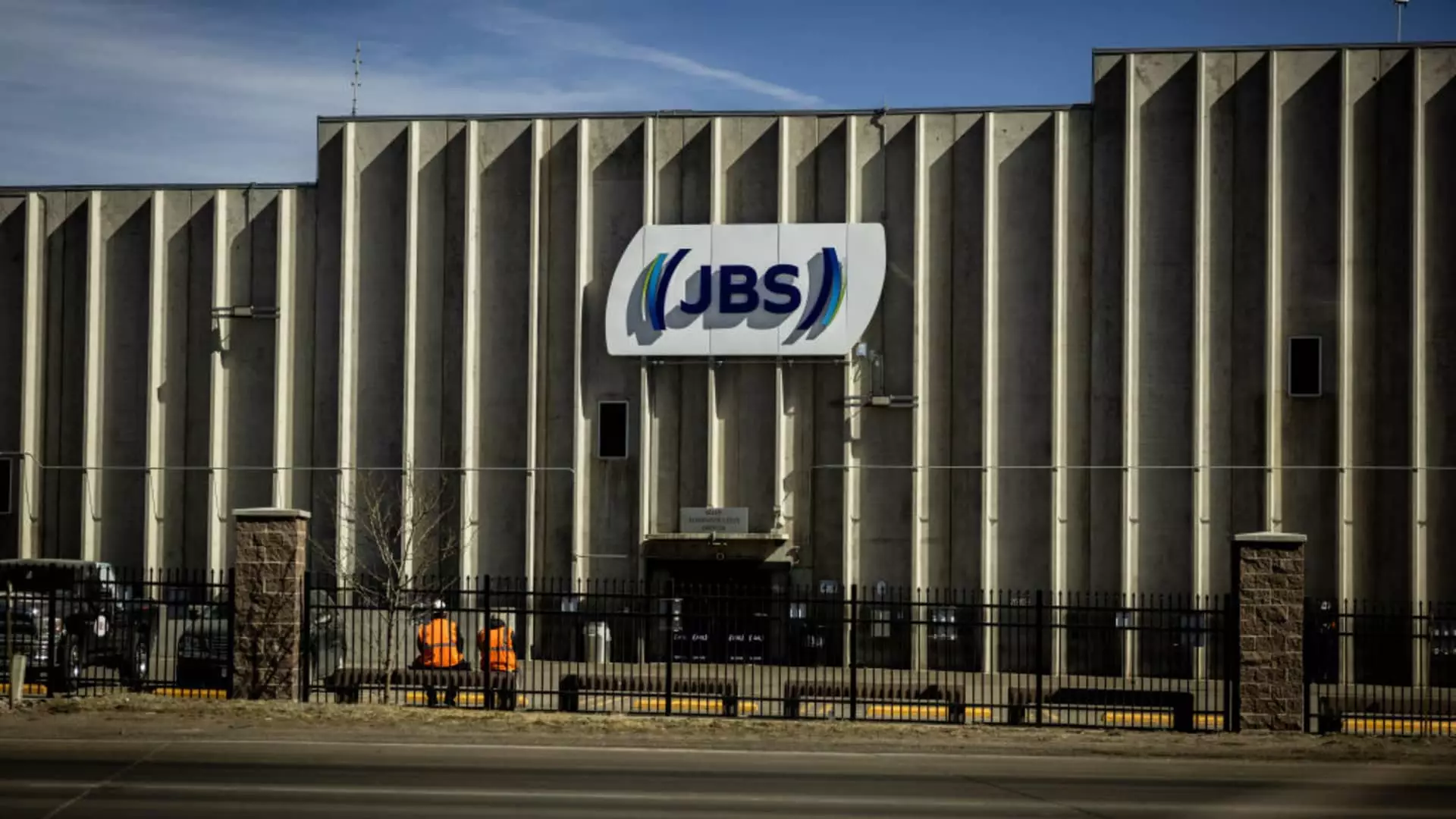The recent listing of JBS on the New York Stock Exchange has been a watershed moment in the world of meatpacking, but not without significant reflection on the ethical dilemmas and historical baggage that accompany this corporate giant. At $13.65 a share, JBS now boasts a market capitalization of roughly $30 billion, eclipsing Tyson Foods, its nearest rival. Yet, this moment of triumph is clouded by a legacy of corruption and ethical transgressions that demands scrutiny.
Growth Amid Controversy
JBS has certainly earned its place as the world’s largest meatpacking company since its inception more than 70 years ago. Reporting net revenues of $77.2 billion last year, the company operates across continents, particularly thriving in Brazil, the U.S., and Australia. Despite these impressive figures, one can’t help but feel a disquieting sense of unease about how this behemoth has maneuvered through both legal and ethical loopholes to reach its current pinnacle.
The duality of JBS’s corporate identity is striking: on one hand, it is a powerhouse providing jobs and contributing significantly to economies; on the other, it operates under the shadow of legal accusations and corruption scandals. The 2017 bribery case — where J&F Investimentos, the holding company behind JBS, paid a staggering $3.2 billion to settle charges — should not only raise eyebrows but inspire a deeper dive into corporate governance issues. Why does a company with such financial prowess also harbor a history riddled with corruption?
The Wire of Corruption
The Batistas, founders of JBS, have had their share of legal troubles. Their ability to avoid prison time through cooperation with prosecutors is indicative of a troubling leniency that springs from their corporate clout. It poses a significant question: should the legal system afford such advantages to powerful corporations? The damage is done — JBS’s reputation has been stained, muddying public perception as the company ventures into the American market with grand aspirations.
Recent governmental actions also point to the ethical morass surrounding JBS. A fine for buying cattle from illegally raised sources in the Amazon underscores both a disregard for environmental conservation and a willingness to skirt the law to increase profit margins. The American public and its representatives have palpable concerns regarding any company that displays such blatant disregard for legality and ethics. Hence, JBS’s entry into the U.S. market has been met with skepticism, regardless of the SEC approving its request to list earlier this year.
Political Connections: A Double-Edged Sword
One of the most disconcerting aspects of JBS’s corporate strategy is its brazen engagement in political donation. The revelation that Pilgrim’s Pride, a subsidiary of JBS, was the largest single donor to former President Donald Trump’s inauguration committee raises questions about the intertwining of corporate interests and political power. This isn’t merely political charity; it unveils a potentially dangerous pattern of corporatism where businesses exert undue influence over legislation and regulation.
JBS has proudly stated it has a “long bipartisan history participating in the civic process,” yet the reality often reflects a skewed system where money begets influence. Prominent legislators from both sides of the aisle have expressed discontent regarding the ethical integrity of JBS, suggesting that public officials need to take a firmer stand against companies that exploit political donation as a strategy for evasion.
A Lobby of Doubt
Despite the ambition behind JBS’s U.S. market entrance, doubts loom large. Lawmakers’ opposition to its initial public offering was not merely a knee-jerk reaction but rather a necessary stance reflecting public sentiment about corporate practices. A company with a notorious background should not waltz into the American market and set a precedent for future entities looking to replicate its questionable practices under the guise of economic success.
In the realm of global commerce, JBS’s story exemplifies the dichotomy of progress intertwined with ethical compromise. As the company attempts to portray itself as a pillar of the meatpacking industry in the U.S., one must wonder if this ambitious leap is paving the way for a renaissance in corporate ethics — or if it simply represents another chapter of capitalist opportunism devoid of moral obligation.


Leave a Reply